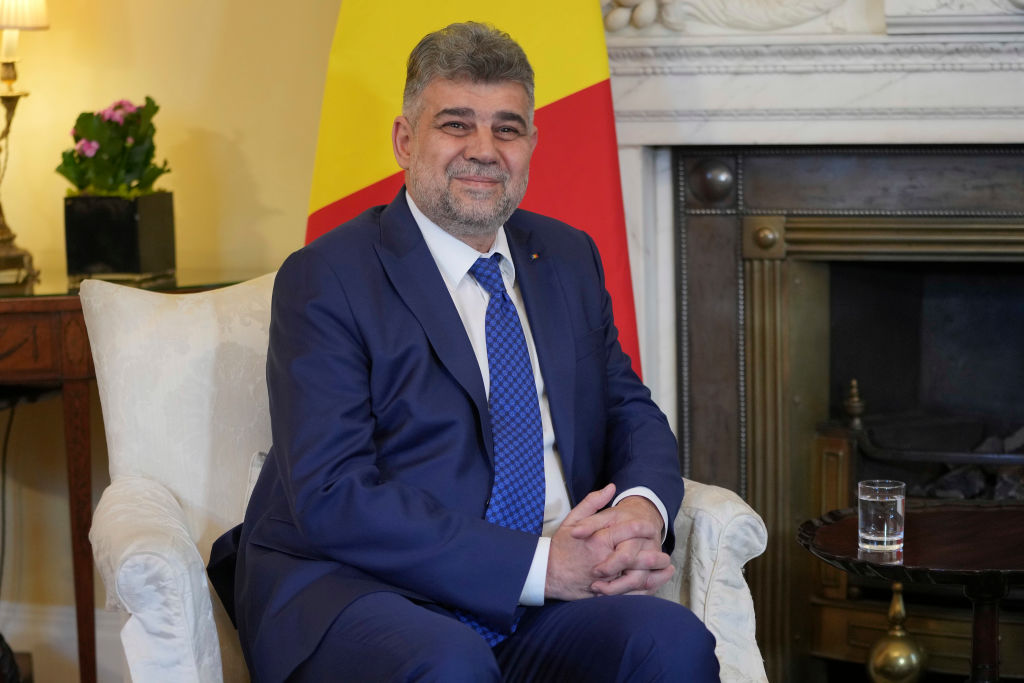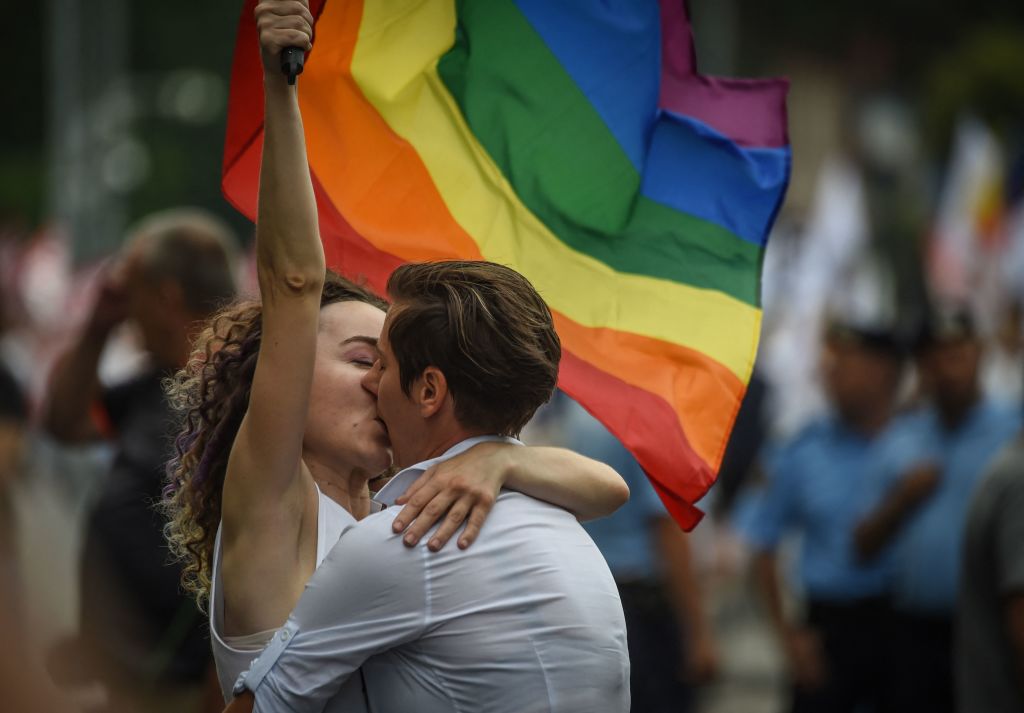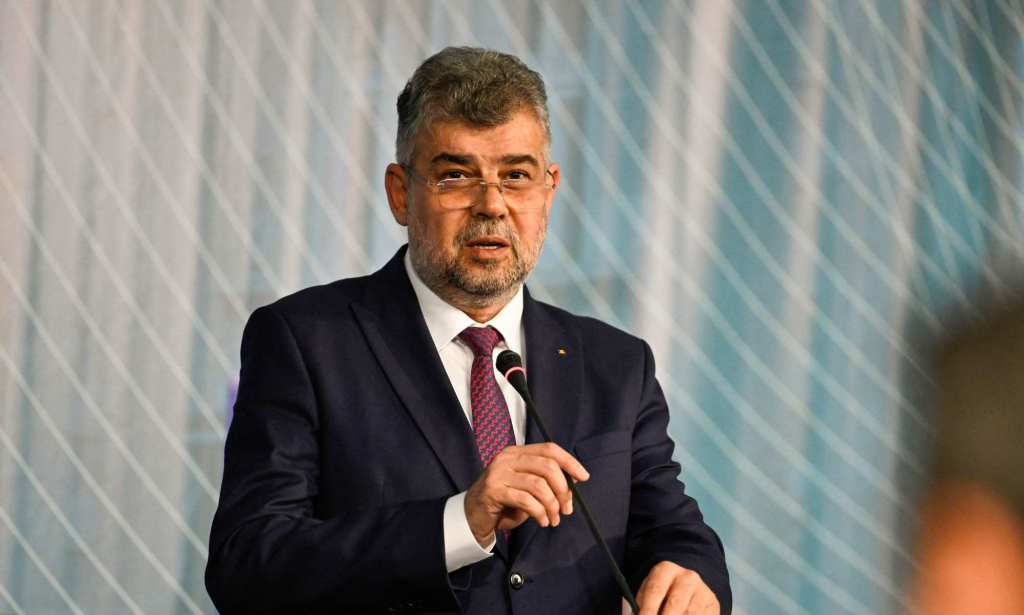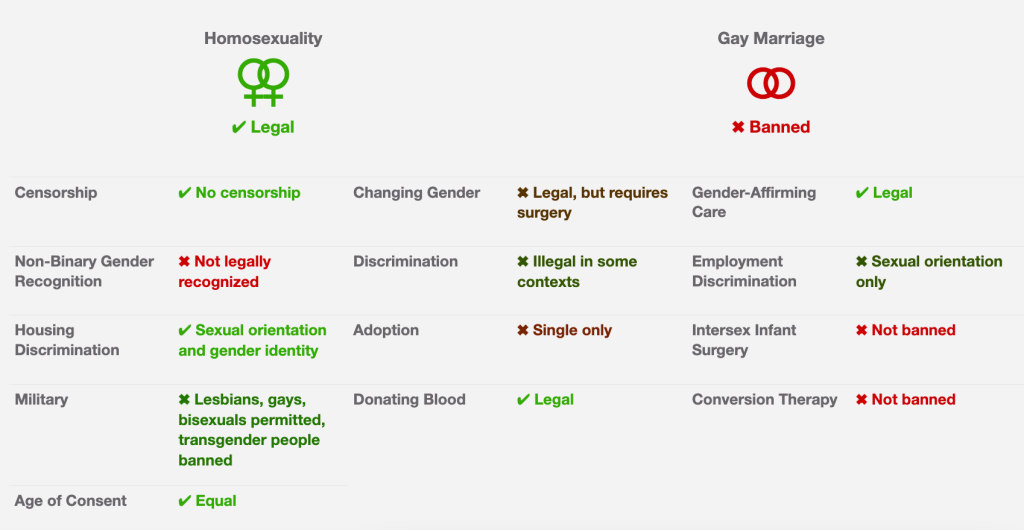What are LGBTQ+ rights like in Romania now, and what could happen if far-right takes power?

Calin Georgescu (R) is a populist Romanian right-wing candidate leading the election (Getty)
Romania has been described as being “in shock” today (25 November) after far-right candidate Calin Georgescu won the first round of the country’s presidential elections.
Calin Georgescu, an independent candidate who is a NATO critic, won with a 22.95% share, beating incumbent prime minister Marcel Ciolacu of the Social Democratic Party (PSD), who had been the favourite to win the first round.
62-year old Calin Georgescu will now go on to face Elena Lasconi of the centre-right Save Romania Union party on 8 December. It’s the first time in 35 years that the left-wing PSD won’t have a second round candidate.
What is life currently like for LGBTQ+ people in Romania?
Things haven’t exactly been rosy for the LGBTQ+ community under left-wing rule, so it’s concerning to see this far-right surge in the country, which was formerly run by tyrannical communist dictator Nicolae Ceausescu. Could things get worse, and could queer peoples’ hard-won rights be rolled back?
According to IGLA-Europe, LGBTQ+ Romanians currently face a great deal of inequality.
More than 25,000 people joined this year’s Bucharest Pride in July 2024, marking the largest march to date. The Pride Festival featured 20 events and spanned over nine days.
However, on the same day a counter-demonstration called March for Normality was held in the capital.
Also in July 2024, an MP named George Simion shared a social media post to say that LGBTQ+ people are to blame for the weather conditions, which are divine punishment. In the same month, the head of the Romanian Orthodox Church also said that “homosexuality was, is and will remain unnatural”.

Marcel Ciolacu: country ‘not ready’ to uphold LGBTQ+ rights
A year ago, in November 2023, Romania’s Prime Minister said that the country isn’t ready to uphold LGBTQ+ rights in line with the European Court of Human Rights (ECHR).
It came after the ECHR ruled in May 2023 that Romania had breached of article eight of the European Convention on Human Rights – the right to respect for private and family life – by refusing to legally recognise same-sex relationships.
In an interview with Europa FM, left-wing Prime Minister Marcel Ciolacu was asked about his thoughts on the ECHR ruling and whether Romania would now consider expanding protections for the LGBTQ+ community.
Ciolacu said: “Romanian society is not ready for a decision at the moment. It is not one of my priorities and… I don’t think Romania is ready.”

He continued: “I am not a closed-minded person, I… have friends in relationships with a man, I don’t have a problem with that, I am talking now from the point of view of a prime minister.”
Ciolacu added that he didn’t believe it would be the last time that Romania failed to enforce the ECHR’s rulings.
Although Romania decriminalised homosexuality in 2001, it has yet to legalise marriage or civil partnerships for same-sex couples.
In the ECHR’s investigation into Romania’s failure to recognise same-sex couples, it was determined that the societal opposition to same-sex marriage in Romania should not override same-sex couples’ right to have their relationships legally recognised.

The investigation had been prompted by complaints lodged by 21 different Romanian couples to the ECHR, arguing that there was no way to legally safeguard their relationships due to the country’s lack of recognition.
Each of the couples had given notice to their local registry offices expressing their intention to marry, but their requests were rejected under an article that defines marriage as being between a man and a woman.
Their requests were also rejected under a separate article which states that same-sex marriage is “prohibited” in Romania.
LGBTQ+ propaganda bill
In 2022, Romanian lawmakers came under fire when the government introduced a so-called LGBTQ+ “propaganda” bill, which would ban the use of materials in schools that “promote” being queer.
According to the World Values Survey conducted between 2017 and 2020, three-quarters of the population said that they believed that homosexuality is “not justifiable”.
What rights could Romanian LGBTQ+ people lose under Calin Georgescu?

Equaldex – a collaborative knowledge base for the LGBTQ+ movement – give Romania an overall score of 46/100 for its treatment of LGBTQ+ people, taking into account factors like legal rights and also public opinion about queer people in general.
Trans people are currently banned from serving in the military and can’t legally change gender unless they have gender affirming surgery. Non-binary people are not legally recognised. Gay marriage is banned.
Homosexuality is, however, legal, as is gender affirming care. LGBTQ+ people are permitted to donate blood and the age of consent for queer people is equal to that of heterosexual people.
At the time of writing, it is still unclear whether Elena Lasconi or Calin Georgescu will win on 8 December, and what the premiership of either candidate could mean for the already less-than-comprehensive LGBTQ+ rights in the country. We’ll update this article when the results are known.
How did this story make you feel?

